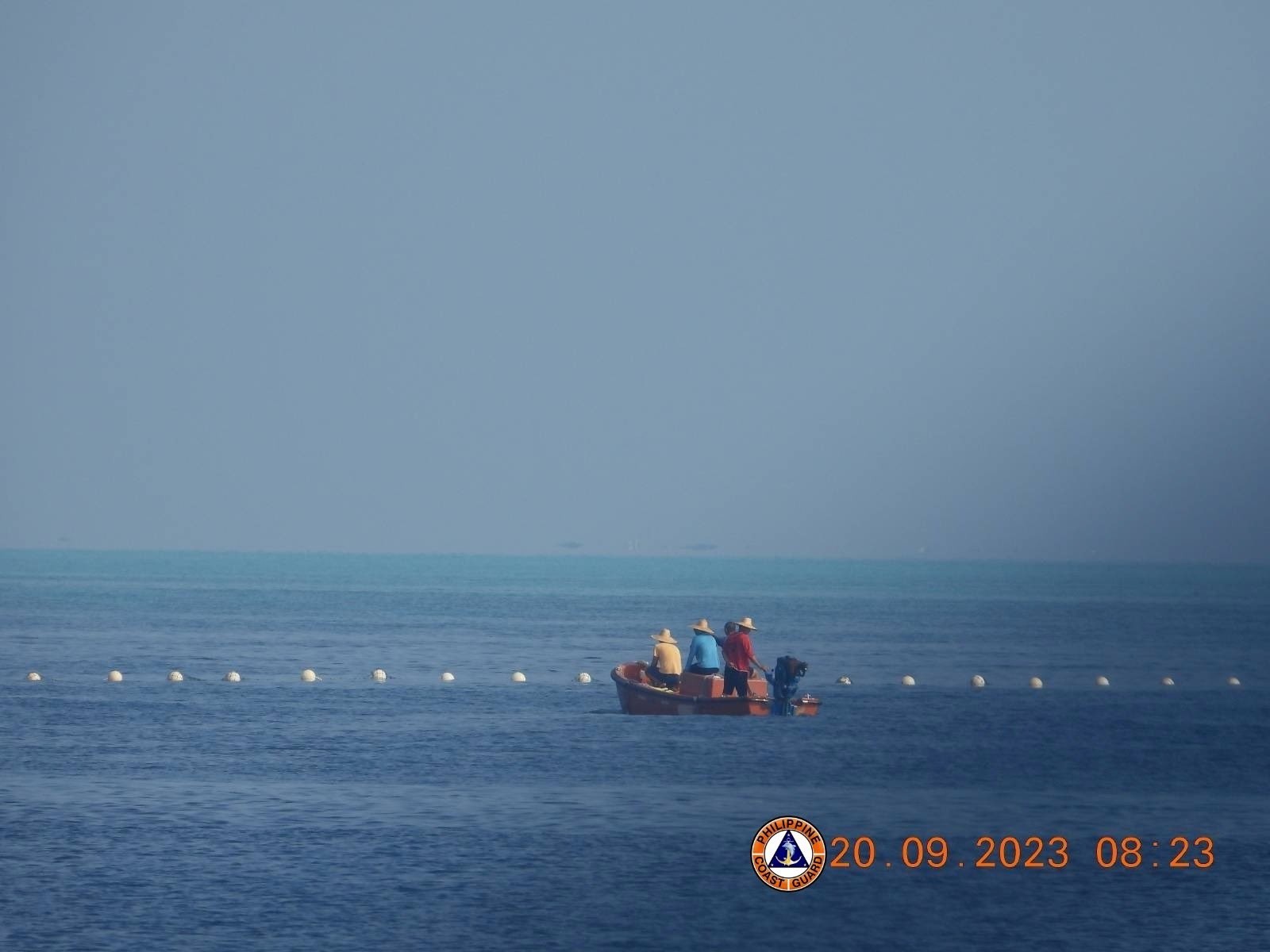Anti-trespassing rule: What happens if a Filipino is arrested by Chinese forces in WPS?

China’s new regulation empowering its coast guard to arrest foreign nationals “trespassing” in areas it claims in the South China Sea officially took effect on Saturday, June 15, prompting the Philippine government to take actions to ensure the safety of Filipino fishermen and citizens accessing the West Philippine Sea (WPS).
But the question that many Filipinos are asking remains unanswered: What happens if Chinese forces arrest Filipinos in the areas claimed by Beijing which overlap with the Philippines’ claims?
Philippine Coast Guard (PCG) commandant Admiral Ronnie Gil Gavan said the directive of President Marcos Jr. to them is to ensure that no Filipino will be harmed due to China’s new regulation.
Gavan said the PCG intensified its maritime patrol in the WPS ahead of the enforcement of the new anti—trespass rule by China.
“Sa kautusan ng ating Pangulo, President Ferdinand Marcos Jr., aming pinaigting lalo ang aming pagpapatrolya. Walang basehan ang China na maglabas ng kautusan na iyon kaya ang utos ng Pangulo, dapat wala ni isang mangingisda ang maapektuhan noon (On the orders of President Ferdinand Marcos Jr., we intensified our patrol operations. There is no basis for China to issue such order that’s why the President directed us that no fisherman should be affected by it),” Gavan said in a radio interview over dzBB on Saturday.
For Armed Forces of the Philippines (AFP) chief General Romeo Brawner Jr., he hopes that no arrests would be made but if things go south, certain security protocols would be activated.
“We are concerned about the declaration by China, especially the China Coast Guard that they’re going to implement this coast guard law, meaning they’re going to arrest fishermen, not just Filipinos but fishermen from other countries as well in the South China Sea as bounded by 10-dash line claim. For the Armed Forcces of the Philippines, we have made some preparations,” Brawner said.
Protocols
To secure all Filipino fishermen in the WPS, Gavan said he cascaded a new directive to all coast guard districts to coordinate with different fishing organizations for a better monitoring of their members.
“Earlier this week, I have directed all the districts affected by the new order to enhance their coordination with fishing organizations so that they can intensify the monitoring of the movements of the fishermen. The coast guard districts will have a special arrangement which will enable fishing organizations to contact them immediately if ever China does anything to a Filipino fisherman,” Gavan said.
The PCG Commandant did not go into details of the special arrangement crafted by the coast guard districts as he said these are all part of “operational procedures.”
However, he explained that fishermen usually pass through the coast guard stations to give a heads up where they are going before sailing. Fishermen who adhere to coast guard regulations, according to Gavan, know the contact details of the respective coast guard district where they live so it would be easy for them to give a call or radio alert in case of an emergency.
If PCG personnel witnesses an arrest that is being made against a Filipino, Gavan said that the PCG’s “rules of engagement” shall be automatically activated.
“Mayroon tayong rules on the use of force, in place po iyon (Our rules on the use of force are in place),” he assured.
Aside from this, Gavan said that there are other avenues for the government to go to if in case a Filipino citizen is arrested by Chinese forces under the new anti-trespassing rule such as political and diplomatic channels.
Gavan appealed to the public to remain calm amid fears of arrest from Chinese forces in the country’s own waters.
“Ang aking pakiusap, lahat ay maging kalmado lang. Ginagawa naming ang lahat para mapreserve ang isang sitwasyon na mas maenjoy ng taumbayan ang West Philippine Sea (My appeal is that we should all calm down. We are doing everything to preserve a situation where the public can enjoy the West Philippine Sea),” he said.
WPS situation
Approximately four hours before the new regulation took effect, the PCG deployed multi-role response vessel BRP Malapascua (MRRV-4403) to Bajo de Masinloc (Scarborough or Panatag Shoal).
At around 8 p.m. of June 14, BRP Malapascua arrived at 45 kilometers east, southeast of Panatag Shoal, according to maritime security analyst Ray Powell.
“Four hours before the China Coast Guard's new detention policy went into effect – Philippines Coast Guard ship BRP Malapascua arrived 45 km ESE of Scarborough Shoal, signaling Manila's determination to protect its fishermen. It was met by two [China Coast Guard] ships,” Powell said on X (formerly Twitter).
On Saturday, BRP Malapascua was joined by her sister ship, BRP Sindangan, Powell added.
Meanwhile, from Panganiban (Mischief) Reef to Ayungin (Second Thomas) Shoal, China deployed six more maritime militia vessels while another Chinese ship was monitored sailing further east, according to Powell.
The Philippine Navy (PN) earlier disclosed that it has monitored an increase in the number of Chinese vessels operating in the WPS this week, compared to last week.
A total of 146 Chinese vessels (22 People’s Liberation Army Navy ships, 16 China Coast Guard vessels, and 108 Chinese maritime militia vessels) were monitored in the WPS from June 4 to 10, higher than the 125 Chinese vessels (11 PLA Navy ships, nine CCG vessels, and 105 CMMVs) recorded from May 28 to June 3, according to Commodore Roy Vincent Trinidad, PN spokesperson for WPS.